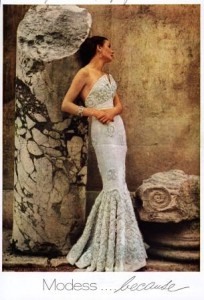Today I am 65k into the first draft of my work-in-progress and finding it bally hard going. I knew this one wasn’t going to be easy – nothing worth doing is. It has at its heart a difficult relationship and calls on, somewhat tangentially, areas in my life I’d really rather not confront.
I don’t want to give spoilers, or pre-empt things that might not get in the finished book, but I’d like to comment on a particular aspect in this post. One strand that runs through the book has an ick factor in some people’s minds. It deals with something we don’t talk about – and most certainly don’t write about in fiction for young people. At the back of my mind, Mrs Sensible says ‘you keep that in and no gatekeeper will ever let you in – never mind the book’.
Yet Ms Creative says ‘it stays – I’ve gone through a lot to put that toe-curling, squirm-able part of my life into a fictional form – and that’s what makes it good, something readers will engage with.’
Who is right?
If I look at the opinions of rational, professional writers who have to pay the bills like Stroppy Author – Mrs Sensible wins hands down. After all, I have the luxury of a patron (Lovely Husband) and not being published yet – so no expectations from the industry. But I want to be professional, to write well and to pay my way. ‘Submitting something a bit dodgy – not wise,’ says Mrs Sensible.
On the other hand, the only method I have for writing original stories which avoid the banal and the obvious, is to use the heartfelt experiences inside me. In this case, it has led to something a great deal of adults are squeamish* about – and may make it unpublishable. But it matters – it’s been hard to write about and although it’s not finished, it’s good. It matters to the central character and makes a difference to her relationships and the plot. Not so easily removed.
Mrs Sensible suggests ‘write it for an older readership then’ – Ms Creative counters ‘they’ll be too old, it’ll be memory, not experience’.
What to do? All comments very gratefully received – I haven’t had any for a while.
*including me




Such a dilemma, and one that a lot of us face, in one degree or another. For what it’s worth, I’d say let Ms Creative have the upper hand in this draft. Mrs Sensible can always have a go at it later. But I think it’s good to write with everything we’ve got, and to save the cool headed thinking for a later stage.
Whatever you do, I’m wishing you courage and luck!
Thank you, Amy – your kind comments mean a lot to me. As you say, stick with the creative first – then get analytical later!
I agree with Amy, always go for creativity first. If you’re writing is strong then gatekeepers will see that and discuss reigning in anything too controversial. You can always compromise and reach a solution that you are happy with, but you are unlikely to go back and add ickyness to a safe story.
I appreciate this, Julienne. I think I know in my heart – but my fear gets in the way.
Generally I’d advise going with your gut. If your creative instincts are telling you that this controversial element is part of the muscle and power of the story, they’re probably right.
Oh, I do value this from you, Frances. Thanks for the support.
Keep with it for this draft, and when that is done have another look. One approach, rather than losing it all together, might be to make it implicit rather than explicit. That way kids who are ready to read about the experience will pick up on it but younger ones won’t. Of course, not knowing what ‘it’ is it’s difficult to say. But if it’s an issue that affects your target readership it should stay.
I’m liking the implicit bit if my editor ( assuming it’s not me self-publishing!)insists I tone it down.
Thanks for commenting, Kate.
Always, always go for it, I say.
Think: what would Meg Rosoff do?
Good motto, Jan.
Thanks.
How funny – I’ve recently experienced exactly the same problem in my current WiP. I did something akin to what one of your commenters suggested, and I’m hoping it’s the right solution. I mentioned the issue in a non-explicit way, in the hope that those who understand the reference will appreciate why it’s there, and those who don’t understand it won’t find their reading experience impaired. Fingers crossed, at least!
Hello there, S. J. Glad to have your comment. It’s a tricky thing to pull off though, isn’t it?